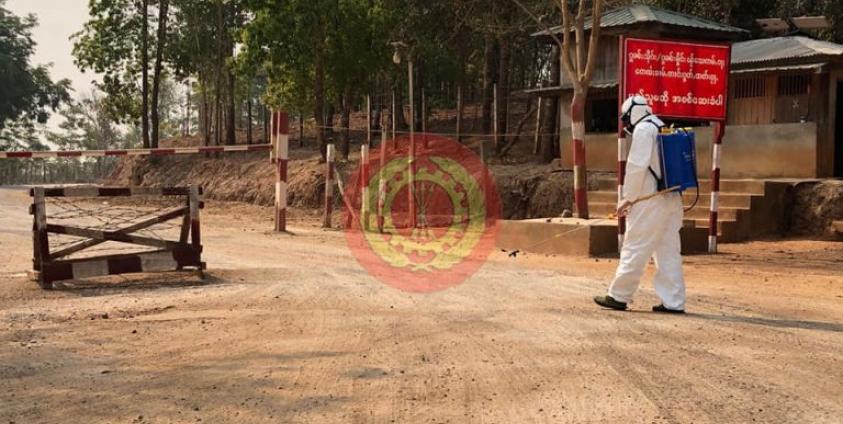Ethnic armed organizations (EAOs) have said that they are struggling to work with the Burmese government to combat the coronavirus pandemic.
Spokesperson for the Shan State Progress Party (SSPP) Maj Sai Bone Han said that while his organization originally thought that it would be mutually beneficial to work with the government to fight the outbreak of COVID-19, many challenges have arose.
“The government has its own problems. That’s why we are working on what we can do,” Maj Sai Bone Han told NMG. “Our organization is paying attention to this issue and we are working as much as we can. We wish to work together with CSOs, volunteer teams, health organizations, and other organizations,” the SSPP spokesperson said.
The SSPP formed a committee on March 28 to prevent the spread of COVID-19 in their territory, and drew up a policy on how to work with civil society organizations (CSOs) and the government to this aim. They have also launched an awareness campaign in line with the rules and directives of the World Health Organization and Burma’s Ministry of Health and Sports.
Maj Mai Aik Kyaw, who is in charge of the Ta’ang National Liberation Army’s (TNLA) information department, said that it remains an obstacle to work with the government in response to the coronavirus.
“I don’t think the government will invite us to cooperate, because we are not a signatory EAO to the NCA [Nationwide Ceasefire Agreement],” he said. “The government is not only not inviting us regarding this issue, but also for other issues that require cooperation. They do not accept us. There are especially obstacles in place for non-NCA EAOs. That’s why we don’t have any cooperation with [the government].”
UN secretary general António Guterres issued an appeal for a global ceasefire on March 23, so that all resources globally could be focuses on fighting COVID-19. The Karen National Union and Karenni National Progressive Party welcomed the statement and made the same demand of the Burmese government and military—to declare a nationwide ceasefire during this public health crisis.
“We are not just requesting an end to hostilities during the coronavirus outbreak. We have demanded the end of hostilities before. We want peace and stability… We have been demanding it since before the outbreak of this virus,” the SSPP’s Maj Sai Bone Harn said. “The government, army, and EAOs need to consider this very carefully. It’s a critical time. What should we do for our country? This is something every responsible person and every organization needs to think about.”
At the time of reporting, there were 20 confirmed cases of COVID-19 in Burma. A 69-year-old patient in Yangon was the first documented death from the virus on March 31. Because of underdeveloped health infrastructure and a lack of access to medical care and testing kits in Burma, the true number of infections—and casualties—surrounding coronavirus remains unknown.







